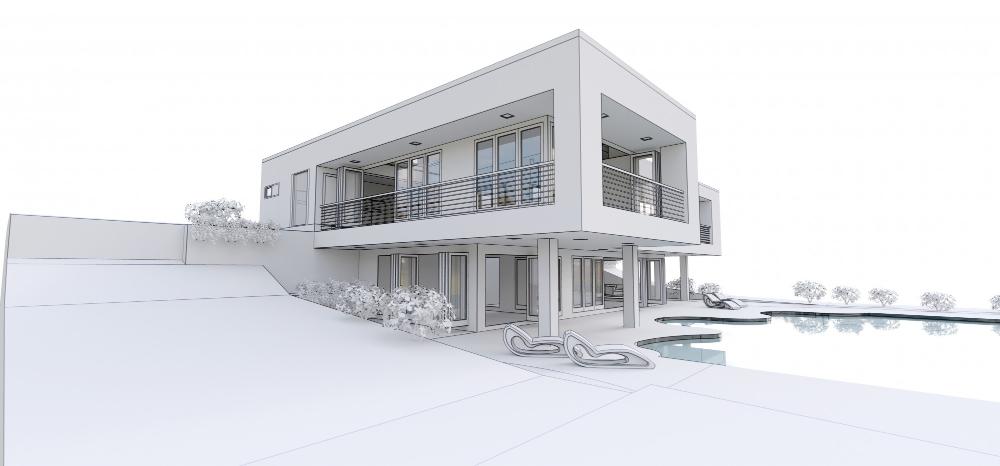Past, present and future of the tax on municipal surplus value
“The plenary session of the Constitutional Court declares the unconstitutionality and nullity of the objective system for calculating the tax base of the capital gains tax”, stated the informative note no. 102/2021, published on November 3 on the website of the Constitutional Court .
If any tax aroused great controversy, it was the tax popularly known as the municipal capital gains. With the latest ruling, the Constitutional Court has given it the last straw by annulling the calculation formula on which its accrual was based, even in cases in which the transfer of real estate and urban land was carried out with profit. With this latest resolution of the Constitutional Court, capital gains tax is already the past.
The newspaper La Región reports that several contentious courts in Galicia, in which the tax had been appealed, have begun to annul the liquidations of capital gains and return the amounts, by applying the judgment of the Constitutional Court. The Ourense Department of Finance, in turn, says the newspaper, is being forced to return the amounts of the liquidations that it has made and that had been claimed and, according to its calculations, "could detract from the income of the municipal coffers of the Concello de Ourense at least 1.5 million euros”.
In the ruling, the Constitutional Court places limits on taxpayer claims and self-assessments subject to review: those that are final in administrative or judicial proceedings and provisional or final ones that are not challenged or have been rectified, all of them in the time of sentencing. Those are the exceptions to the sentence. In all other cases, the municipalities and the courts and tribunals have to comply with the sentence. And they have to do it without delay, excuses or pretexts, whatever the reasons given by the taxpayers, since the sentence does not distinguish between them. In the coming months we will verify the commitment of the mayors to the will of their neighbors and if the Town Halls demonstrate with facts that they are the closest institution to them. This is the present of the tax: to put into practice what was decided by the Constitutional Court.
The future has been written with unusual speed by the Government, through the Ministry of Finance, approving Royal Decree-Law no. capital gains tax, wanting to make good the saying "a dead king, king post".
Many opinion pieces have highlighted unresolved issues in a tax that will remain controversial. I heard a few days ago from Mariano Barbacid on the Órbita Laika program that cancer is spoken of in the singular, when in reality, there are a hundred types of cancer and each one needs increasingly individualized treatment. The same happens with surplus value that is spoken of in the singular when there are several. The tax affects real estate -it is a real tax- in onerous and "intervivos" sales (donations, too) and real estate awarded to the heirs free of charge, that is, "mortis causa" and others many real rights.
When the Constitutional and Treasury Court considers capital gains as a single tax, even though real estate or land is taxed under various titles, neither one, in its last sentence, nor another, in the Decree-Law, refer at any time to surplus value "mortis causa"; the TC, because it has not wanted or has not needed to refer to it and the Treasury, because its objective is to provide the municipalities with financing, as María Jesús Montero has argued when defending the validation of the Royal Decree-Law in Congress. Since the first judgment of the TC, the mayors of the big cities, above all, felt distressed, as they often express themselves, and they immediately asked the Government for compensation due to the decrease in income that it would entail.
By adding the “mortis causa” capital gains tax to the “intervivos” capital gains, it causes a very significant increase in the capital gains as a whole until placing this tax in second place on the podium, after the IBI, of the taxes that the City Councils they collect. Both real taxes are levied on the same assets: real estate or urban land. Double taxation?

Inheritances, in addition to capital gains, are subject to another tax: inheritance tax. The valuation of the habitual residence of a deceased (as the most common example) is added to the hereditary mass with the other assets (accounts, deposits, pictures, jewelry, etc.), whose tax is paid by the treasuries of the autonomous communities. Both taxes, one for the town hall and the other for the respective autonomous community, tax the same manifestation of economic capacity, but the inheritance tax has a centuries-old tradition, although in some Communities it is subsidized until it almost disappears, but not the tax. of surplus value.
The General College of Economists (CGE) in a report "For a transparent tax system", ensures that "this optional tax for City Councils [half of the 8,124 do not charge it] should disappear", since it is a tax that taxes the increase in the value of the land that is already taxed as capital gain in personal income tax and with greater perfection, a surcharge would proceed, if anything, nothing more”.
According to the General Council of Notaries, the number of cases in which the assets remain in the hands of the State has skyrocketed as many families renounce their inheritance. It has grown, according to the Council, by 110% between 2007 and 2012, at 20% year-on-year.
The note, therefore, most characteristic of the capital gains tax, especially with regard to capital gains “mortis causa”, is its multi-tax nature, an aspect that does not stand out when analyzing it. The Commission of experts for the review of local financing created by the Government of Rajoy in 2017 highlighted it. When it examined the Tax on the Increase in Value of Urban Nature land (IIVNU or Plusvalía), the first thing it observed , discussed and raised was whether to decide on the recommendation of its suppression. "The Commission, says the final report, takes into account that in the IIVNU a multiple taxation is clearly manifested, especially in relation to income taxes that are levied on capital gains, as well as those that are levied on real estate transfers."
Faced with appeals of a wide variety of types, the Constitutional Court has studied double taxation in many sentences, based on the prohibition that art. 6.2 of the Organic Law on Financing of the Autonomous Communities states in the following terms: "The taxes established by the Autonomous Communities may not fall on taxable events taxed by the State." "The aforementioned art. 6.2 of the LOFCA only prohibits duplication of taxation, for the same taxable events between regional taxes and state taxes, but not between the former and the taxes of the Local Treasuries” (STTC, 37/1987, FJ 14).
On the same legal basis, the Constitutional Court distinguishes between the concepts of taxable matter and taxable event to protect duplicity of taxation. And, on the contrary, it indicates the identification of both concepts as the error that leads to an "extensive interpretation of art. 6.2 of the LOFCA, notoriously far removed from the true scope of the prohibition that is contained in said regulation”.
"Taxable matter or object of the tax must be understood as any source of wealth, income or any other element of economic activity that the legislator decides to submit to taxation, a reality that belongs to the factual level." In our case, it is real estate. "The taxable event, on the other hand, is a strictly legal concept that, in response to certain circumstances, the Law establishes in each case "to configure each tax and whose realization originates the birth of the tax obligation."
"Hence, in relation to the same matter, the legislator can select different circumstances that give rise to as many taxable events that in turn determine different tax figures." ”What art. 6.2 prohibits, in its own terms, is the duplication of taxable events, strictly”.
The Constitutional Court, as a good hurdler athlete, thus overcomes all the obstacles that can be argued to appeal double taxation. Since medicine and law are not exact sciences, doctors and jurisprudence have solutions for the most varied circumstances and cases that arise in their respective field (medicine, on the organic matter that is our body and judges, on the inorganic), being the results also diverse.
At this point we come to the heart of the matter: the financing of the municipalities. Protected by the Ministry of Finance in the permitted double taxation of capital gains tax and even its multiple taxation by the Constitutional Court, the objective of the Ministry of Finance, forced by the Mayors, consolidates in Royal Decree-Law 26/2021 said tax as second tax, after the IBI, for the financing of the Town Halls. Neither the objective method = cadastral value of the land X generation coefficient X tax rate nor the real method = (sale deed price – purchase deed price) X % land value X tax rate, will result in a zero or negative quota. The Royal Decree Law will continue to give rise to continuous claims.
The mayors of large cities are quick to ask and not very diligent in imagining other solutions to comply with and extend the services that the law attributes to local corporations and that residents demand from municipalities. And local financing is not finished, because the reality that is perceived today is different from that of years ago and advances with other demands; However, the Town Halls trust it, to a large extent for many years, to the now almost classic taxes, the IBI and capital gains. They have become so essential, according to these Mayors, that they feed the budgets of Spanish municipalities in a much higher percentage than European municipalities (52.9% compared to 38.1%). But let's say it bluntly: the capital gain in the case of inheritances is an optional, voluntary tax for the Town Halls, so 50% does not settle it.
In its report, the Commission of experts made a novel proposal for Spanish municipalities: a tribute to tourism. "It is proposed, says the report, the creation of a new tax linked to tourist stays." The Commission justifies this because tourist stays in hotel establishments are an unequivocal sign of economic capacity, because it is reasonable for tourists and travelers to contribute to the financing of the public services they enjoy (citizen security, street cleaning, public transport, etc. .). A personal tribute to tourists and travelers, which mayors have systematically refused to impose on their cities and which in years past would have brought many resources to municipalities. The days will soon come when world tourism once again reaches billions, travelers travel the world again after the pandemic, of which 82 million visited Spain in 2019 and many others inland. A tribute that they will pay with satisfaction, because the curiosity, which was the one that moved Cousteau to investigate the seas, is the same that makes travelers move today, and their contribution to the municipal coffers is necessary to repair the environment that they may harm .
The IBI is the great workhorse of municipal taxes. And there is only one fair solution: universalize it. Make your payment mandatory for all standing properties and buildings. Also for cathedrals and ministerial and government buildings. And for the monarch's home. The constitutional principle of equality before the law would be complied with. And the reasons for exemption would decline, not one hundred percent true, which apply to many buildings and real estate, owned by exempt institutions. It is a state pact to help and collaborate in solidarity with the financing of the Town Halls, the institution in which we all feel incardinated. Or is its universal obligation “ad kalendas graecas” left?
Local corporations have other means of financing for the performance of their functions, which the mayors propose and demand more participation in the taxes of the State and the autonomous communities as indicated in art. 142 of the Constitution, thus alleviating the burdens on the most vulnerable citizens.
Felipe Domingo Casas is a member of infoLibre







![47 best antiage nutritive cream in 2022 [based on 326 reviews] 47 best antiage nutritive cream in 2022 [based on 326 reviews]](https://website-google-hk.oss-cn-hongkong.aliyuncs.com/drawing/article_results_6/2022/2/27/1918fc37c66ad30564173e69d9df88a0.jpeg)
